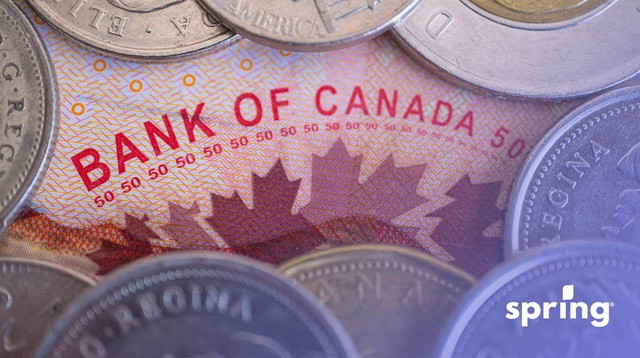How Credit Scores Work in Canada
While some countries have credit scoring systems similar to Canada, others are very different. How credit scores work is they are scored from 300 to 900, with 300 being the lowest and 900 the highest. In Canada, you want a high credit score. This shows you are financially responsible to lenders and can be relied on to return the money that you borrowed.
In Canada, there are two major credit bureaus: Equifax and Transunion. These credit bureaus take a few things into consideration when calculating your credit score. These factors are:
- How long you have had credit
- The length of each credit line on your report
- The balance you carry on your credit cards
- If you make your payments on time or not
- How much your debts are
- What types of debts that you have
- If you have any collections or bad debt write-offs
- If you have a record of bankruptcy and/or insolvency (consumer proposal, credit counseling)
Being a newcomer to Canada, the length of time on your credit report will be short but there are plenty of things that you can do to be able to start improving your credit.
Breakdown of Credit Scores
In Canada, credit scores are broken down into 5 different categories:
- Excellent 760-900
- Very Good 725-759
- Good 660 -725
- Fair 560-659
- Poor 300-559
To get a higher limit and a better interest rate on a loan or credit card, it is recommended that you have at least a good credit score. As we mentioned there are plenty of factors that contribute to your credit score, but here is a breakdown of the percentages.
- Payment history – 35% – Making your bill payments on time makes a huge difference in your overall credit score.
- Credit utilization – 30% – Your credit utilization measures how much you use of your available credit limit. This refers to a credit card balance or line of credit balance. You want to try and keep your credit utilization under 35% to keep your credit optimal.
- Credit history – 15% – Having a good credit history shows lenders that you are financially dependable, especially if you are looking to borrow money. Whether you get a loan or credit card, keeping up with your payments is key.
- Inquiries – 10% – This keeps track of how many times your credit has been checked, Because credit checks do take a hit to your credit score, it is recommended to have no more than 6 credit checks per year.
- Public records – 10% – These are things like bankruptcies, collections, consumer proposals or credit counseling. Keep in mind that these will also contribute negatively to your credit history.
All of these are taken into account when calculating your credit score, so if you falter in one area, you can make it up in another one. Because these different categories will fluctuate every month, your credit score is fluid and will fluctuate every month. Keeping some consistency will help it stop from dropping too low.
Building Your Credit in Canada
Even without a credit score, there are things you can do to start building up your credit. The thing with credit though, is that it could take some time to build up your credit history. That is why doing things that will have a positive influence will make a big difference.
As you can see above, though, payment history has the most influence on your credit score so even doing something as small as making your payments on time can be very beneficial to your credit score.
- Get a phone plan. While it might seem insignificant, getting a phone plan and paying your bill on time every month can have a positive influence over your credit score. Keep in mind that this has to be a monthly plan not a prepaid plan. Prepaid plans aren’t reported to the credit bureaus.
- Apply for a credit card. Credit cards are a great way to start building your credit score. When using a credit card though, it needs to be done the right way, otherwise you could end up hurting your credit score more than helping it. The way to do this is to use no more than 35% of your credit limit while making your payments on time. This shows you are financially responsible.
- Get a credit building loan. Credit building loans show a consistent payment history on your credit report. This gives lenders confidence that you will make your payments on time. Credit building loans generally run for around 1 year.
- Open a secured credit card. If you are unable to get a credit card, a secured credit card is a good option. It has the same effect on your credit report as a regular credit card except for the fact a security deposit is required. The amount of the deposit depends on the credit card company and the limit on the credit card.
- Get a car loan. A car loan is one of the easiest loans to get. Because a vehicle loan is a secured loan, lenders are more likely to give them out. This is because they can repossess the vehicle if you default on your payments. If you have low to no credit, you may just have to be prepared to have a high interest rate on the loan.
- Ask your landlord to report your rent payments. A good way for those who are new to Canada to build some credit is to have their rent payments reported to the credit bureaus. Keep in mind that it may cost you to do this though, and it could hurt your credit if you miss or are late on a rent payment.
Build Your Credit With Spring Financial
Here at Spring Financial we offer credit building loans to help you get the credit score you need to meet your financial goals. It is called the Foundation. The Foundation reports your payments to the credit bureaus while saving your money.
The products last for 12 months and, once it is complete you will have $750 in savings. Then you can either take out your savings or get the guaranteed Evergreen loan of $1500 at 18.99%.
Reasons You Need a Credit Score In Canada
When you think credit scores you automatically think financing, but credit scores are used for much more than that. Many employers require a credit check before they will hire you. Especially if you are in the finance industry. Landlords also sometimes require a credit check before they allow you to rent. They do this to help reduce the risk of a loss of funds.
Depending on what financial institution you choose to bank with, they may require you to do a credit check. If you don’t pass, they may not allow you to open an account with them either. There are plenty more situations where your credit may need to be checked as well.
How to Get a Credit Card
The kind of credit card you get as a newcomer to Canada all depends. Some banks will give you an unsecured smaller limit credit card if you bank with them. If you are unable to get one that way, you may need to go with a secured credit card.
Secured credit cards require a deposit, most around $300. They come in all different limits and still report to the credit bureaus. Secured credit cards also have competitive interest rates with unsecured credit cards.
Keep in mind that while credit cards are a great way to improve your credit score, they have to be used correctly. Credit card interest can add up quickly and contribute to a high credit card balance. This can then negatively affect your credit score. If you do get a credit card to help build your credit, make sure you manage your credit card debt and make your credit card payments on time.
Getting a Car Loan
Getting a car loan as a newcomer to Canada is not as difficult because it is a secured loan. Secured loans are much easier to get because the lender can just collect the collateral, reducing their loss.
With little to no credit history, your interest rate is likely to be quite high, but as you establish a good standing, you will be able to refinance for a lower interest rate. Usually after about a year, you can get a better rate.
Building Credit in Canada if you’re from the US
If you’re moving to Canada from the US, it’s the same as anywhere else, you can’t transfer over your credit. That being said, you will have the ability to move your credit card from the US version to the Canadian version.
While this does nothing for your credit score, it does save you the hassle of having to apply for new credit cards. As long as you use these credit cards properly, you will be able to establish a good credit rating in Canada, very quickly.
Best Banks in Canada for New Immigrants
In Canada, there are a lot of banks that have programs for newcomers. A lot of these programs help with the struggles that come with arriving in Canada with no credit history.
From chequing accounts to credit cards, these offers can give you a bit of a head start when it comes to immigrating to Canada. Below are some of the offers that the top five banks in Canada offer, but there are plenty of other financial institutions that have incentives for newcomers to Canada as well.
RBC
The Royal Bank of Canada offers some perks to newcomers to help them gain a strong financial start when they first enter the county. In Canada, most accounts require bank fees. RBC offers a free bank account for a year, a free book of 50 cheques and no fees for a year when using RBC ATMs. You also get unlimited debit transactions in Canada. On top of that, they will also help you get an unsecured credit card when you open a bank account with them.
CIBC
CIBC offers no fees on your account for up to 2 years. Depending on the reason you have come to Canada, they will tailor your bank account for what you need. Another thing about CIBC is that they have credit cards specifically for newcomers to Canada. You can also get unlimited e-transfers and $0 global transfers which CIBC has available to over 120 different countries.
TD
TD also has options for those who are new to Canada. Their new to Canada banking package is available to those who have been in Canada less than 5 years and have little to no credit history. You can save on your monthly chequing account fees for up to 12 months, get rebate on global money transfers for up to 12 months, bonus interest on a savings account and unsecured Visa credit card. The specifics of each of these features will depend on your individual financial situation.
BMO
BMO offers a new program called the “New Start Program”. Depending on promotions, this program may include a welcome bonus and no chequing account fees for over a year. They offer options for mortgages, chequing and savings accounts, credit cards and money transfers without requiring any Canadian credit history. You would have to contact the bank directly to find out what you are eligible for.
Scotiabank
Scotiabank also offers a newcomers banking package. This package includes no monthly fees on the preferred package, unlimited international money transfers with no fees, free small safety deposit box for a year, unsecured credit cards specific to newcomers to Canada, mortgages for newcomers to Canada and new vehicle loans for only 10% down. In order to get these there will be some documentation required to prove whether you are a permanent resident or a foreign worker.
Overview
Moving to a new country can be a very overwhelming experience, especially when your credit score doesn’t transfer with you. While building your credit score up can seem like a stressful process, it is easier than you think. There are plenty of things you can do like paying your bills on time and getting a cell phone plan, things you would normally do anyways.
There are also plenty of programs available to assist you with building up your credit history. No matter your situation when you arrive in Canada, there are plenty of things you can do to help boost your financial future.








